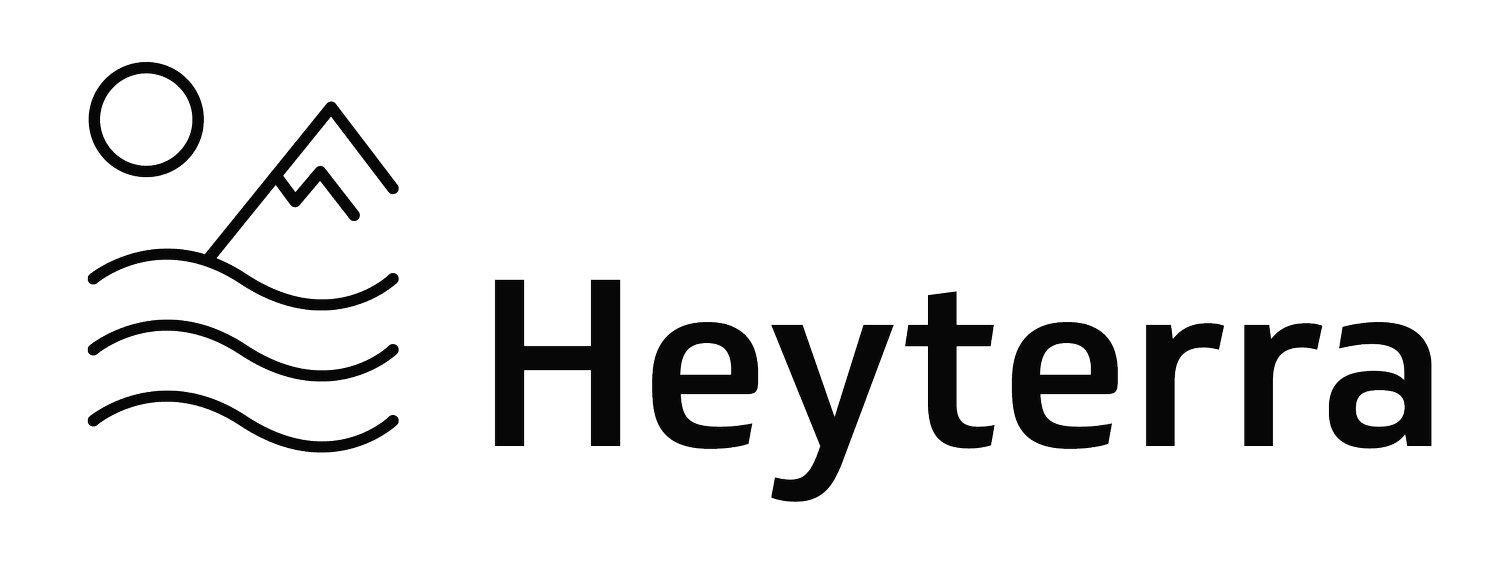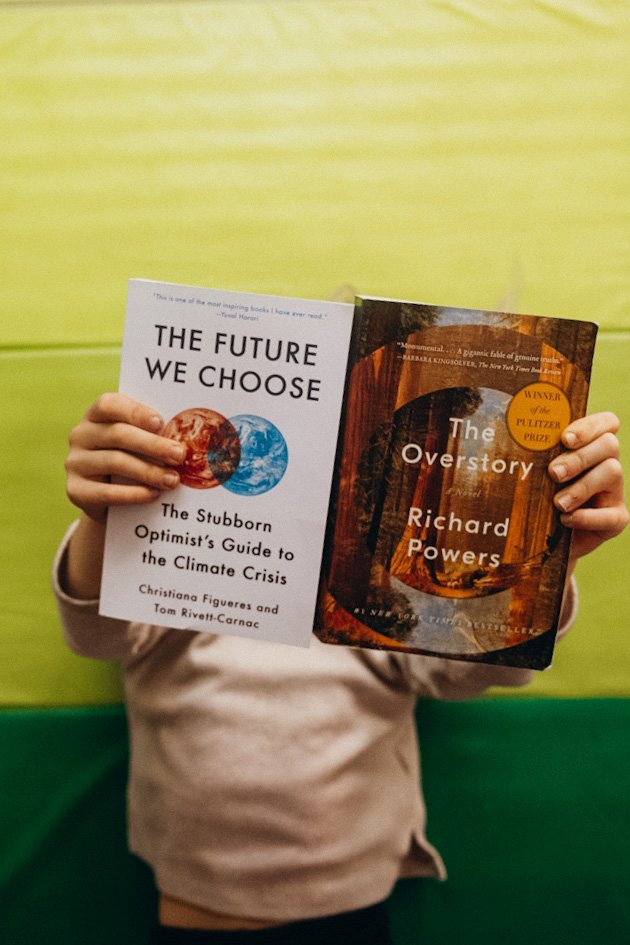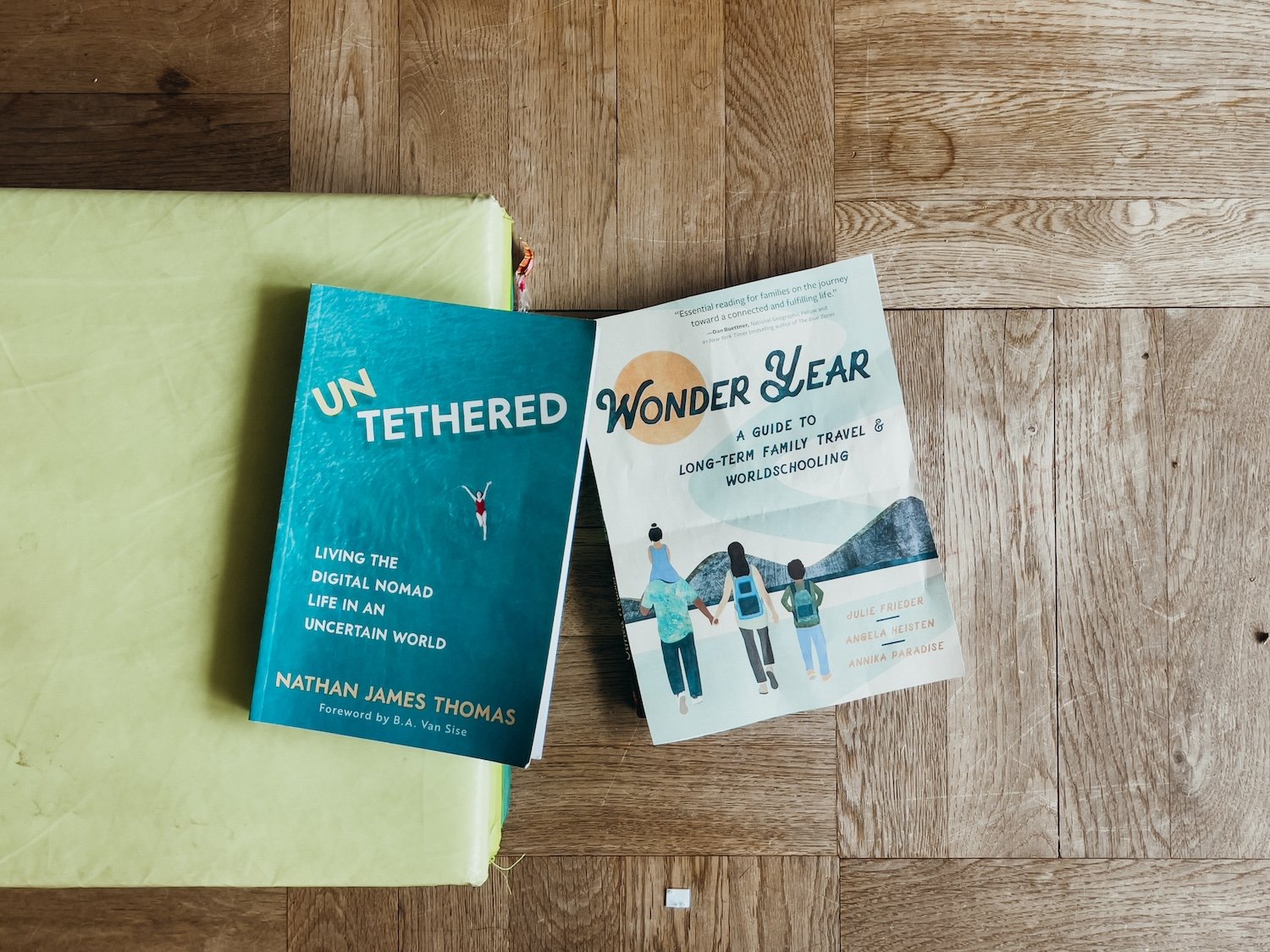Five Books on the Map to a Better Future
Our end-of-year picks that all touch on this beautiful planet we live on, and the power we have to regenerate it.
December is a funny month.
Sometimes it feels like it’s over before it even begins, and other times it plods on for ages. With the onset of northern hemisphere winter, we tend to turn inwards away from the cold and dark, while at the same time prepping for big group gatherings and maybe even holiday travel. Because December is a month of holidays: St. Nicholas Day, Hannukah, Bodhi Day, Yule, Christmas, Boxing Day, Kwanzaa, and the list goes on. Even for those who don’t celebrate any of these dates, schools and workplaces will most likely get interrupted. The ensuing chaos of family, food, and free time can be daunting for some, heartening for others. But anyone who loves to read can probably agree that a good book is the perfect companion to such a rollercoaster of a season.
One annual event that we’ve been excited about this December is the COP28 that just wrapped up in Dubai. The agreement reached by 200 countries to “transition away from fossil fuels” marks a major milestone for the climate movement. To celebrate, for this installment of our Book-of-the-Month series, we have chosen a cluster of books that touch on the planet we live on, and the power we humans have to destroy – and regenerate – its natural splendor.
Many of these books can be found printed on recycled paper and all of them have been out long enough that used copies could be available. Whether shopping new or secondhand, searching for a gift for oneself or others, remember to support local, independent bookstores whenever possible.
The Overstory by Richard Powers
This tome of a book came out in 2018 but remains more than relevant today. Powers weaves several different subplots together to tell a larger story written in the canopy above and the roots below. For readers who struggle with non-fiction but want to learn more about the incredible ways in which trees communicate and support one another, this novel provides a wealth of information. From the chestnut trees on the east coast to the redwoods on the west, and all the way down to the Amazonian rainforest, each distinctive species becomes a protagonist in this tale of destruction and unlocked potential. The human characters sometimes come across a bit two-dimensional, overshadowed by the magnitude of the trees themselves, but each of their origin stories and arcs add another layer of lore and history behind these mystical, seemingly speechless organisms. The resulting tale is both gritty and gorgeous, cautionary and hopeful, and the perfect escape hatch for any time of year.
Fen, Bog and Swamp by Annie Proulx
For a relatively slim volume, these pages pack a weighty punch. In fact, Fen, Bog and Swamp is - fittingly for the northern hemisphere winter - the opposite of a beach read. With little in the way of a narrative thread, the book steeps the reader in a bayou-like atmosphere of meandering information ranging from history to science, and from myth to speculation. Hearing about such fertile and beneficial ecosystems after they have been largely obliterated from the face of the earth could make for some gloomy reading, but Proulx’s fascination with the role these waterways played in human history over the centuries, the treasures found therein, and the faint glimmer of hope for future carbon capture by properly replanted biomes such as mangroves make it more than bearable. In any case, the more we learn about what we’ve lost, the more value we can place on regeneration efforts taking place today.
The Future We Choose by Christiana Figueres and Tom Rivett-Carnac
Those familiar with the podcast Outrage + Optimism will know the real voices of Figueres and Rivett-Carnac who tirelessly inform the general public about the state of the fight against fossil fuels. In this literary venture, the co-writers don’t shy away from the worst-case scenario of the climate crisis, describing in great detail what the world would look like in 2050 if we had done nothing more to curb emissions after 2015. Not to give too much away, but it doesn’t look pretty. Luckily, it’s not all doom and gloom. The focus soon turns to what it could look like if we took the problem seriously: a thriving planet running on renewable energy complete with nature-infused cities, vast networks of unintrusive trains replacing most domestic flights, and much, much more. Practical strategies for working toward this best-case outcome follow. From their refreshing advice on how to change the way we think before we start to tackle the actual problems at hand to their 10-step program for how to implement change, these two climate activists leave the reader with plenty of action points and an abundance of positive, stubborn optimism to pull from.
Five Quarters by Rachel Roddy
Cookbooks geared toward eating sustainable and seasonally seem to be a dime a dozen these days, but this is one of our favorites. In her beautiful text and simple, striking photos, Roddy explores Roman food as seen through the eyes of a traveler while finding commonalities with her native England. She references techniques learned from Italian family members, locals, and the vendors at her favorite markets where she shops throughout the year for seasonal bounty. Between personal anecdotes and historical origins of dishes and traditions, she can make something as simple as lentils sound enticing. Roddy includes a meat section, but most of the humble carnivore recipes utilize the less-desirable parts of the animal and – for those who have successfully transitioned away from a carnivorous diet – many of the bean and veggie recipes can be made into a full meal with the addition of eggs or cheese. We love how she incorporates family traditions such as eating fava beans and pecorino in the spring and fresh fruit in the summer, encouraging eaters to get their hands and faces dirty in a way that might inspire little ones to embrace fruit and vegetables. Roddy’s headnotes are inviting and informative, and her directions helpful but concise. The offhand wine pairing recommendations throughout are an added bonus.
Here We Are by Oliver Jeffers
And lastly, something for the kiddos in our lives, because an awareness of our planet earth can never start too early. And who doesn’t love Oliver Jeffers? Here We Are is a sweet little number that sticks to the basics. What is this planet we live on, and how do we teach awareness and respect towards it to children at their earliest stage of consciousness? Jeffers’ approach involves his signature full-spread illustrations with plenty of deep, rich colors, a sprinkling of science, and adorable depictions of the diversity of life on earth. With such a pure message of orientation and reverence for newcomers to the planet, it’s likely this book will stick around to be read time and time again over the years.
Happy December, and Happy Reading!









